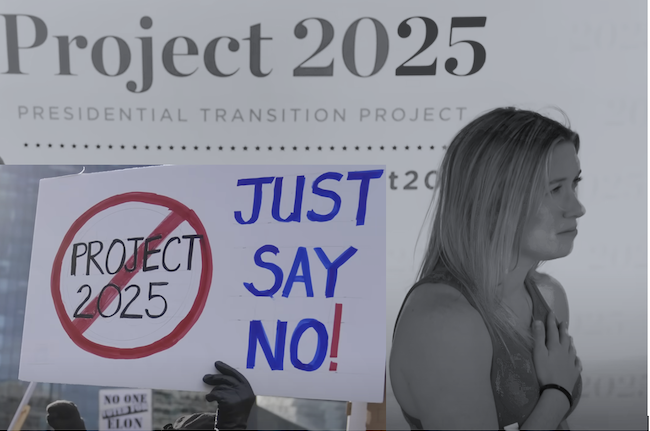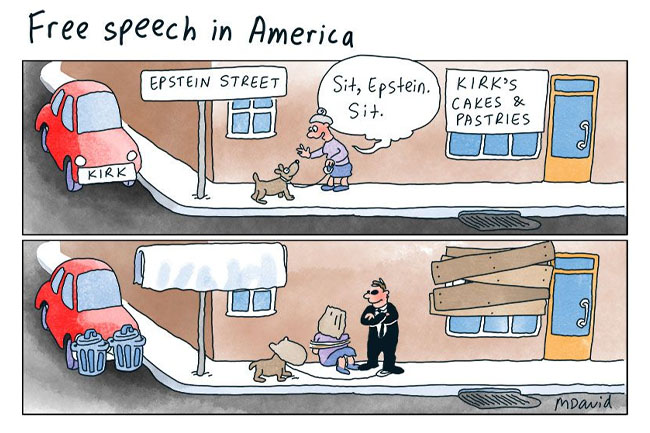Dr Victoria Fielding analyses the "just asking questions" defence used by mainstream media journalists to avoid scrutiny and critique when their bias or poor journalism practice is exposed.
DURING THE HEAT of the last week of the 2022 Federal Election campaign, ABC’s Fran Kelly accused Labor Senator Penny Wong of leaking the confidential AUKUS deal to the media.
In a live interview, Kelly said:
“It was highly confidential. It had to be kept airtight. Within hours of briefing Labor, it leaked. I mean you were in that briefing. Did you leak it?”
Wong was so shocked by this unfounded accusation that she was momentarily speechless, before saying, “Are you kidding?”. Kelly took this pause as an opportunity to continue her accusations, stating there were four people in the briefing and asking again if “any of you leaked it”. Wong had no choice but to say: “Absolutely not”.
We all know as soon as you get someone to deny something, it raises suspicions that where there is smoke, there is fire. This was akin to the classic loaded question: When did you stop beating your wife?
ABC viewers were shocked and outraged by the slanderous accusation. Twitter audiences shared their displeasure, particularly pointing out that Wong’s long history in politics has demonstrated she has the utmost integrity. Kelly accusing the future Foreign Minister of leaking a confidential briefing felt like a new low in a belligerent, combative, gaffe-and-scandal-seeking media whose woeful performance during the election left voters despairing.
I was so personally outraged by the accusation that I immediately lodged a complaint to the ABC. I pointed out that this question was not a devil’s advocate question which provided Wong with a chance to put her views across in a fair and reasonable manner, but was instead nothing more than an accusation designed to present Wong as possibly untrustworthy. It was a political attack.
The response I received to this complaint tells you much about ABC’s unwillingness to self-reflect on their journalism practice, as well as their lack of acknowledgement that there is no such thing as "just asking questions":

We often hear journalists defend themselves against accusations of political bias or misrepresentation by saying: "I was just doing my job by asking questions!" A similar justification was given by journalists in the Victorian press pack reporting at COVID-19 press conferences. Over many months, live on television during a traumatic and scary period for Victorians experiencing a health crisis, journalists bludgeoned Premier Dan Andrews and his team with so-called-questions, each loaded within an anti-COVID-restrictions frame, aiming to perpetuate a political narrative that framed Andrews as an illegitimate "dictator".
Veteran journalist and academic Margaret Simons referred to these aggressive questions as ‘faux watchdogism’ which was ‘more about entertainment and journalists’ egos than gaining useful information’.
The same politicised one-sided aggressiveness was on display during the recent Federal Election, when journalists claimed they were just "asking questions" of Albanese after they heckled him for days over when his election costings would be released and why they hadn’t been released already.
It was telling that in an institution that hates to call itself out, Laura Tingle felt the need to point out how "embarrassing" this display was for her profession.
Journalists have turned the "I was just asking questions" excuse into an untouchable get-out-of-gaol-free card. It is simplistic thinking to argue that questions are just questions. Questions are, of course, powerful. They frame the respondent’s answer. As I’ve said previously, when Leigh Sales asked Josh Frydenberg when he would pay down Australian debt, it implied that paying down debt was the only politically and economically sensible thing to do – a contested and ideologically biased idea which frames the response in a political way.
Fran Kelly’s question also shows how easily journalists are co-opted into using unverified, politically motivated information to interrogate political opponents.
The ABC’s response to my complaint claimed Kelly’s accusation that Wong leaked details of the confidential AUKUS deal was a legitimate question because then Prime Minister Morrison had made the accusation himself. The ABC had even dutifully written an article about Morrison’s accusation, forcing Labor Leader Albanese to defend Labor’s integrity, trustworthiness and national security credentials.
That’s the thing that is most concerning about the media’s passivity when it comes to using politicised information to frame accusations dressed up as questions.
It doesn’t seem to matter to ABC – or anyone in the mainstream media – if Morrison’s accusation was completely unfounded. The fact that he said it made it legitimate enough to use to interrogate the credentials of his opposition. This gives Morrison the power to say whatever he likes, no matter how outlandish or how ambiguous. Journalists made no attempt to prove or verify that the leaking accusations were true — and then they dutifully used that dubious information as a political stick with which to beat Labor politicians. On live television.
Since politicians have learned that they can say whatever they want and it will be given a mainstream platform, and used against their political opposition, political leaders the world over have learned to use the media as their personal political attack machine.
This is why I argue that it’s up to the media to be watchdogs in the marketplace of ideas. This means not perpetuating false narratives and not being co-opted to use false narratives as a form of political attack.
Whether it be the media using Trump’s birther movement to demand answers about President Obama’s place of birth; the Victorian media perpetuating crazy conspiracies about Daniel Andrews’ back injury; or just this week, the media forcing Albanese to defend a series of productive international engagements just because the Liberals incorrectly accused him of leaving the country Morrison-style during the flood emergency, the media can choose to ignore such ridiculous and illegitimate claims. They do not have to use them as a political attack against political opponents. They can ignore them entirely. They can stop legitimising, endorsing and encouraging bad political behaviour and they can choose to publish or broadcast accusations which uphold bare minimum standards of truth and veracity.
It is never "just asking questions". Journalists have far more responsibility than that. Questions are powerful. The powerful questioners should never be above scrutiny and critique.
Dr Victoria Fielding is an Independent Australia columnist. You can follow Victoria on Twitter @DrVicFielding.
 This work is licensed under a Creative Commons Attribution-NonCommercial-NoDerivs 3.0 Australia License
This work is licensed under a Creative Commons Attribution-NonCommercial-NoDerivs 3.0 Australia License
Support independent journalism Subscribe to IA.
















